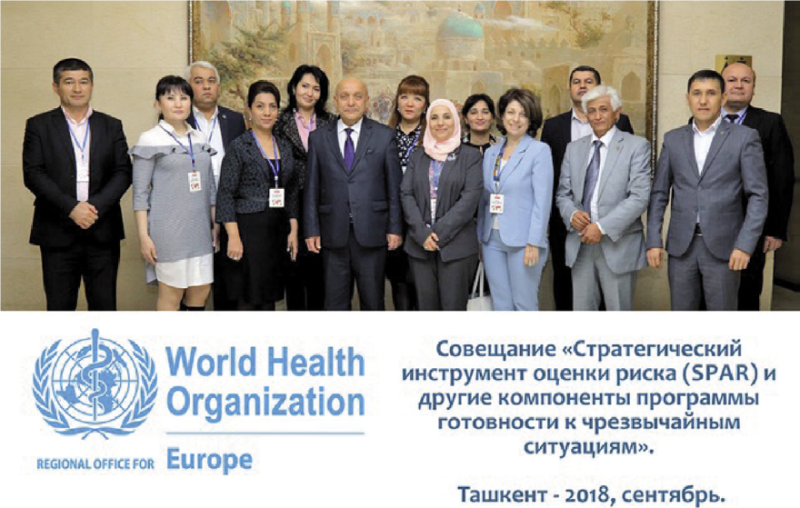
ADVANCING THE IHR MONITORING AND EVALUATION FRAMEWORK IN CENTRAL ASIA
December 21, 2018
European Region
The States Parties Annual Reporting (SPAR) process as an advocacy and networking tool.
A series of national workshops in the WHO EURO’s Central Asian priority-country Hub - Kyrgyzstan, Uzbekistan and Kazakhstan - took place between October and December 2018.
The aim of these workshops was to facilitate the completion of the revised States Parties Annual Reporting tool. They brought together more than 54 participants from relevant sectors including the Ministry of Health, Ministry of Emergency, Transportation and Points of Entry authority, Veterinary and Agriculture authorities to discuss and complete the SPAR tool. The structured methodology, led by the IHR National Focal Points and WHO emergency staff facilitated input from all stakeholders and partners.
These workshops provided a platform to promote partnerships and networking among key stakeholders and to advocate the need for greater multisectoral coordination in preparing countries for managing health threats. The outcome was an accurate assessment and shared vision on the needs in the region for the full implementation of IHR (2005). The joint completion of the SPAR furthermore, was an opportunity for exchange and capacity building amongst partners as it was the first time many of the key stakeholders came together to discuss their roles in IHR implementation.
All Central Asian States Parties in the WHO Health Emergencies Programme priority country hub submitted the SPAR by the 31st of October deadline. Across the European Region, 33 of 53 States Parties submitted the annual report. The State Party Annual Reporting will be used as one of the key metrics for measuring the progress towards the achievement of the 13th General Programme of Work target of 1 billion more people better protected from health emergencies.